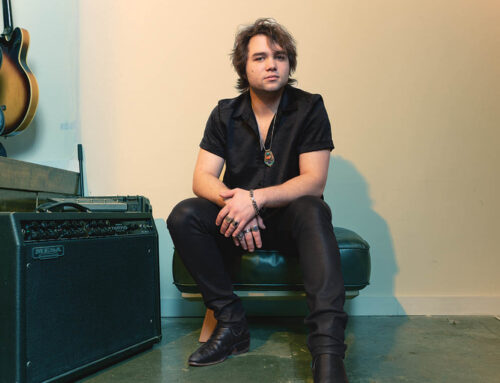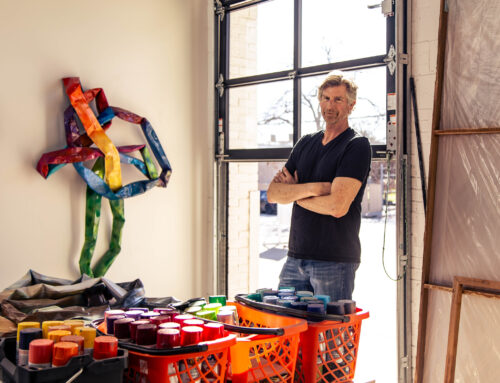Four years ago, our family cat died, and our son desperately wanted a replacement. I knew that a neighborhood veterinarian took in injured pets, nursed them back to health gratis, and then adopted them out.
We checked it out, and there in a small cage was a tiny, couple-month-old three-legged kitten, clipped by a car on a big street. How only its tiny left front leg was injured is beyond me, but the vets amputed the leg and sewed it up.
Today, that cat runs circles around its four-legged adopted brother, and out-eats the bigger cat, too. I guess it takes more energy for three-legged life than four?
And when that cat wants some attention, we’ll feel a tiny bit of pressure on the back of our leg or shoulder, and there it will be, on its haunches, its one good front leg elevated as high as it can reach, beckoning us for a little love.
Without being ground up by a vehicle, this street cat never would have come to live with us. Why it didn’t just die out there goes back to the person who ran over it, the person who found it, the vet and staff who took care of it — everyone’s life impacted by a cat and its injury, and the cat’s life impacted by everyone else.
I thought about this cat when we received an invitation to a party celebrating the doctor who, 40 years ago, cured my testicular cancer. I’ve written about my cancer experience before, so I won’t bore you again with most of the details.
But being invited to a dinner honoring Lawrence Einhorn, the guy who solved the disease, seeing his picture on the card with no great detailing of his accomplishments, just a “come celebrate with me” note, made me think back to the two times his life intersected with mine, and how my life (and yours) is different because of him.
Had I been diagnosed a few years earlier, I would have faced months of chemo and radiation and then an incredibly invasive surgery involving a cracked chest and hand inspection of my lymph nodes. Back then, I saw a guy who had this surgery a few years after the fact, and he still looked like death warmed over. He lived, but his life was diminished and changed. Forever.
Einhorn’s cure meant that 80 percent of those diagnosed didn’t need the chemo-radiation-surgery routine; we just needed two years of monitoring, and if we were lucky, we were done. So I spent two years convinced I was dying, even though at the end of the day, the medical facts said otherwise.
It wasn’t fun, but thanks to Einhorn (whom I didn’t meet then), the ordeal was mostly mental. I still had my health and my energy, and I decided I wanted to get into magazine publishing with my life.
Ten years later, results of an annual blood test to make sure I was cancer-free came back elevated. Significantly.
Over the course of a couple of months, I took the test again. The numbers were even higher. And again. Still higher.
Normally, testicular cancer doesn’t show up 10 years later, but the oncologist I was sent to in Dallas said that even though CAT scans and X-rays couldn’t find any cancer, we should assume I probably had brain cancer and get started on chemo immediately.
Even as I reached for the consent form, my wife snatched it away. She said we needed to contact someone else.
I didn’t know Einhorn. Had never talked with him. Neither had my regular doctor.
But in the middle of the night, limping along on mental fumes and pretty much convinced I was a goner, I found Einhorn’s email address and sent him a plea.
The next morning, there was an answer.
“That doesn’t sound like testicular cancer to me,” he said. “Send me your tests.”
I did. He looked at them immediately.
“I think you need to come up here,” he emailed. “Let us test you. Let’s be sure.”
So we flew to Indiana, met Einhorn, and he ran a blood test and took a chest X-ray.
His conclusion?
“Some people just have odd test results from time to time. I think you’re one of them. I wouldn’t do anything if I were you.”
I didn’t. No cancer materialized. Einhorn took a nearly mentally broken guy and saved my life.
As it turns out, I would have been “cured” of brain cancer had I taken that chemo regimen, since I didn’t have it anyway, but imagine what that would have done to my body. This job. My family. My life.
Just like our three-legged cat, who knows how many lives would be different today had Einhorn not responded to my email, or had he been too busy to take a look?
We’ve seen Einhorn once since then. He was in Dallas and wanted to have dinner.
We bought.







